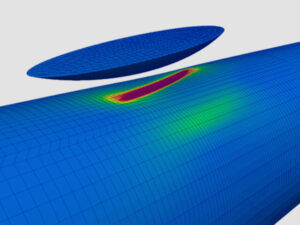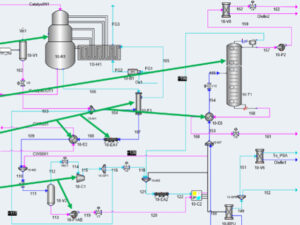Note: The following webinar was originally broadcast in March 2021. Please submit the form below to request access to the recording. Your access will be limited to 30 days.
Piping vibration failures are not uncommon in the oil and gas, petrochemical, and chemical processing industries. Typically considered a fitness-for-service (FFS) problem, in-service piping vibration is solved using brute force cycle counting methods combined with fatigue curves or vibration acceptance curves. In this webinar, Dr. Bifano discusses and compares the future API 579 Part 15 method to current industry approaches (ASME OM-3) and uses several case studies to help you identify, evaluate, and mitigate piping vibration.
Submit the form below to access the webinar:






